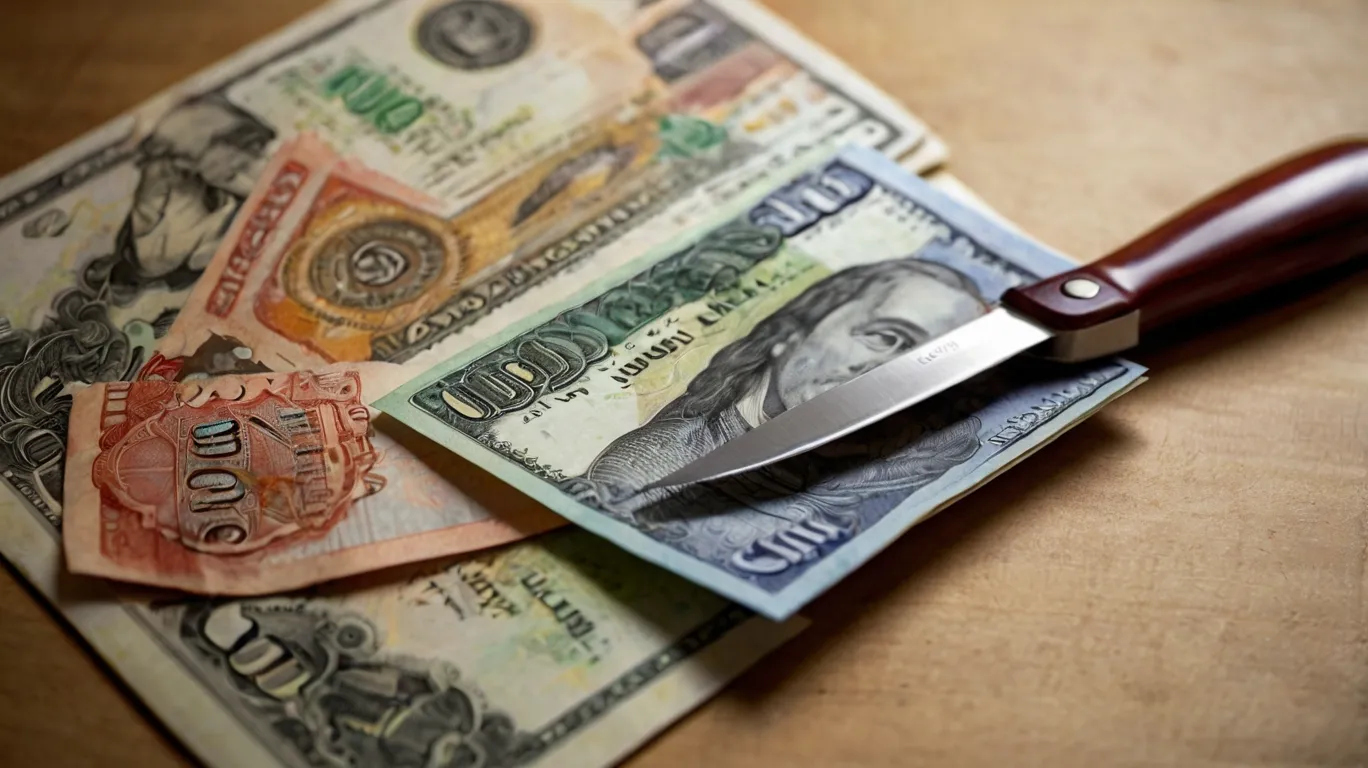Cutting Unnecessary Expenses: A Guide to Financial Freedom
💲How to cut unnecessary expenses begins with asking yourself an honest question: have you ever glanced at your bank account and wondered where all your money went?
In today’s fast-paced world, it is easy to lose track of expenses and find yourself perpetually short on cash. Understanding how to manage your finances means being able to identify and eliminate wasteful spending, creating room for saving and investing in what truly matters. 🌟
The first step to financial clarity involves conducting a thorough audit of your spending habits over the past three months. Categorize every expense as either essential (housing, utilities, groceries, transportation) or non-essential (dining out, entertainment subscriptions, impulse purchases). 🌟
Many people are shocked to discover that small regular purchases like daily coffee shop visits or unused subscription services can accumulate to hundreds or even thousands of dollars annually—money that could be directed toward debt reduction or wealth building.
💲Creating meaningful distinctions between needs and wants represents the psychological breakthrough many need to transform their financial situation. Needs are expenses required for survival and basic functioning in society, while wants are everything else. 🌟
This doesn’t mean eliminating all wants—rather, it’s about making conscious choices about which non-essential expenses genuinely enhance your life and which ones you spend money on out of habit, social pressure, or temporary emotional satisfaction. The most successful savers regularly revisit these distinctions as their life circumstances and values evolve.
Implementing practical systems to maintain your new spending habits is crucial for long-term success. Consider embracing techniques like the 24-hour rule for non-essential purchases over a certain amount, using cash envelopes for discretionary spending categories, or adopting a minimalist mindset focused on experiences rather than possessions. 🌟
💲Technology can be your ally through budget tracking apps, automatic savings transfers, and spending alerts that create accountability. Remember that cutting unnecessary expenses isn’t about deprivation—it’s about intentional spending that aligns with your priorities and creates greater financial freedom in the long run. 🌟
Understanding Your Spending Habits
💲The first step towards eliminating unnecessary expenses is gaining a thorough understanding of your spending habits.
By keeping track of what you’re spending money on, you can begin to identify patterns and areas for improvement. Start by listing your expenses for a month; categorize them into needs and wants, and take note of any surprises that appear. 🌟
| Category | Monthly Spend ($) | Annual Spend ($) |
|---|---|---|
| Groceries | 300 | 3600 |
| Utilities | 200 | 2400 |
| Dining Out | 150 | 1800 |
| Subscriptions | 50 | 600 |
| Transport | 100 | 1200 |
| Entertainment | 80 | 960 |
Keeping a record not only highlights frivolous spending but also provides insights that could help you streamline your budget, ensuring your earnings are aligned with your financial goals.
Analyzing Common Areas of Unnecessary Spending
💲Dining out, excessive subscription services, and impulsive shopping are often culprits of unnecessary spending. While these might seem small at first, they quickly add up over time.
Dining out and takeout often cost two to three times more than preparing meals at home. Similarly, being subscribed to multiple streaming services and apps can drain your resources without appearing significant individually. 🌟
Impactful Strategies for Reducing Expenses

Once you understand your spending habits, it is important to implement strategies to curb unnecessary outflows. Consider the following:
1- Set a budget: Define a realistic monthly budget that allows for savings and discretionary spending while covering all essential expenses.
2- Identify cheaper alternatives: For every costly habit, find a cheaper or free alternative.
3- Limit impulse purchases: Implement a 24-hour rule before making non-essential purchases.
4- Re-evaluate subscriptions: Assess the value offered by each subscription and cancel the ones you rarely use.
“A small leak will sink a great ship.” — Benjamin Franklin
These strategies, while simple, can significantly improve your financial health and reduce stress by providing a clear roadmap for spending. 🌟
Leveraging Technology for Expense Management
💲With numerous budgeting apps and online tools, technology can play a key role in managing your expenses. Platforms like Mint or YNAB (You Need a Budget) provide financial oversight, alert you to billing discrepancies, and track your spending habits.
By leveraging these resources, you can automate the monitoring of spendings and receive regular updates and alerts on your progress. 🌟
Examining the Emotional Side of Spending

💲Spending habits aren’t just about numbers; emotions play a crucial role in financial decisions. Often, we spend money to relieve stress, boredom, or to indulge in a momentary thrill. Identifying emotional triggers can prevent compulsive buying.
Consider practicing mindfulness or alternative stress relief methods like exercise or meditation, directing your energy towards healthier habits.
The Significance of Setting Financial Goals
Setting clear financial goals empowers you to understand why you are cutting back on expenses. Whether it’s saving for a house, retirement, or simply building an emergency fund, having a goal keeps you motivated.
Financial goals should be SMART—Specific, Measurable, Achievable, Relevant, and Time-bound. 🌟
Determining Long-term vs. Short-term Savings
💲Distinguish between long-term and short-term savings objectives. Long-term savings often include retirement plans or substantial investments, while short-term savings could involve vacation funds or emergency savings.
Allocate your budget to cater to both, but ensure you have a safety net for emergencies. 🌟
FAQ – Dúvidas Comuns
✅ How can I identify unnecessary expenses?
Start by tracking all your expenses for a month and categorize them. This will highlight areas where you overspend on non-essentials.
✅ Are all subscriptions considered unnecessary?
No, assess subscriptions based on usage and value. Cancel services that offer little benefit or that you rarely use.
✅ What is a reasonable amount to save monthly?
Aim to save at least 20% of your income, though this may need adjustment based on individual circumstances and financial goals.
✅ Should I use cash or a card for controlling expenses?
Using cash can often help control expenses as it limits spending to what you physically carry, reducing impulse purchases.
✅ How do I start budgeting?
Set a monthly budget based on your income and expenses, focus on essentials, allocate savings, and leave room for discretionary spending.
Conclusion
💲Cutting unnecessary expenses requires diligence, awareness, and sometimes a change in lifestyle. By tracking spending, budgeting responsibly, and setting clear financial goals, you can take control of your finances and pave the way for a more secure future.
As technology continues to offer ever more sophisticated means to manage money, the path to financial health becomes more accessible. Remember, every small saving adds up. Cultivating mindful spending habits today lays the foundation for wealth and success tomorrow. 🌟
👉 From Zero to Financial Freedom
The “From Zero to Financial Freedom” course is essential to ensure a more prosperous and peaceful future for you and your family. It’s an excellent option for those seeking efficiency and quality on their journey toward financial independence.

